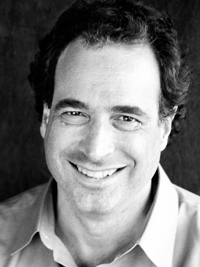It’s New Economy Week, and PCI Fellow Michael Shuman is sharing 24 Ways to Invest Locally. Each day this week (on the seventh day, let’s have a pot luck dinner!), Post Carbon Institute will roll out four ways you can—right now—begin to move your money from Wall Street to Main Street, and help build a vibrant, more resilient economy in your community.

NOTE: Images in this archived article have been removed.
These tools are elaborated in Local Dollars, Local Sense: How to Shift Your Money from Wall Street to Main Street and Achieve Real Prosperity, one of three Community Resilience Guides from Chelsea Green and Post Carbon Institute. Michael Shuman is currently leading all-day workshops on these ideas around North America.
All 24 Ways to Invest Locally are available as one post here. Be sure to check the Resources page for more ways to build community resilience, and the Groups page to connect with people in your area.
TIPS 1-4
(1) Move Your Money – Move all your day-to-day financial activities, including your checking, loans, credit cards, and mortgage, to a local bank or credit union (www.moveyourmoneyproject.org/find-bankcredit-union). These institutions recycle their capital locally—so much so that even though local and regional banks account for only 20% of the assets of all banks, they provide more than half of all the loans to small business.
(2) Start A Credit Union – If your community doesn’t have a local bank or credit union, then start one (www.mycreditunion.gov/about-credit-unions/Pages/How-to-Start-a-Credit-Union.aspx). Credit unions are easier and cheaper to launch than banks, and many communities have small credit unions managed by part-timers or volunteers.
(3) Create Targeted CDs – By law, local banks and credit unions must be very conservative with their money, so they are often wary of loaning money to any local businesses without full collateral. A few banks, such as Ithaca’s Alternatives Credit Union, have agreed to set up special certificates of deposits that fully collateralize loans to high-priority local businesses (www.alternatives.org/greencertificate.html). Eastern Bank in Boston has a CD that collateralizes a line of credit to Equal Exchange, a local fair-trade company.
(4) Stretch Your Coop – Because memberships in a cooperative are not deemed “securities,” they can be more easily used as vehicles for local investments. Some coops, like Weaver Street Market in North Carolina, pay their members handsomely to borrow money for capital projects. Others, like Coop Power in western Massachusetts, invest some member capital in supplier businesses (www.cooppower.coop/products-and-services/community-owned-energy). The La Montanita Grocery Coop in New Mexico has created a revolving loan fund so that members’ capital can support local farmers and food processors.






